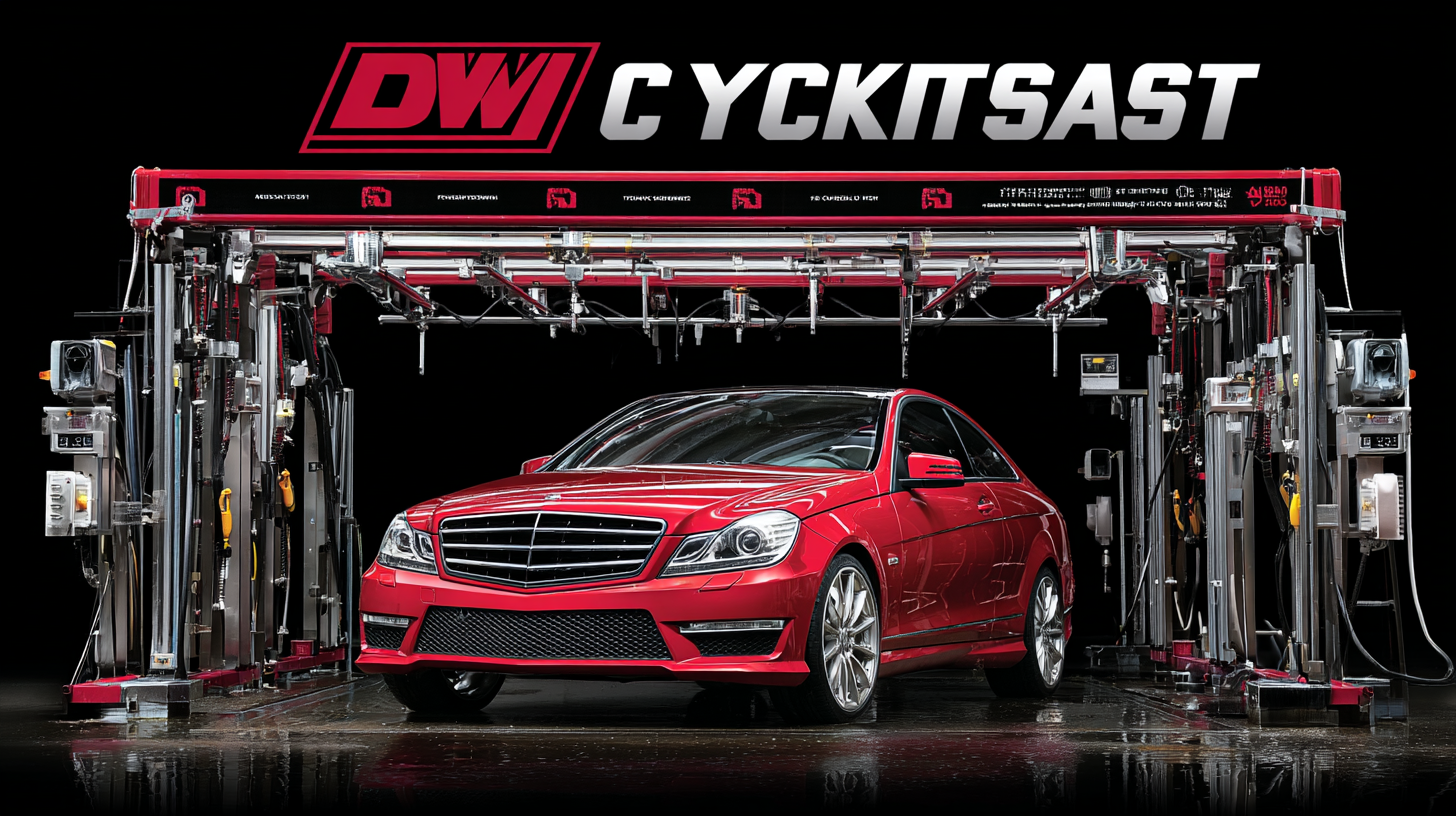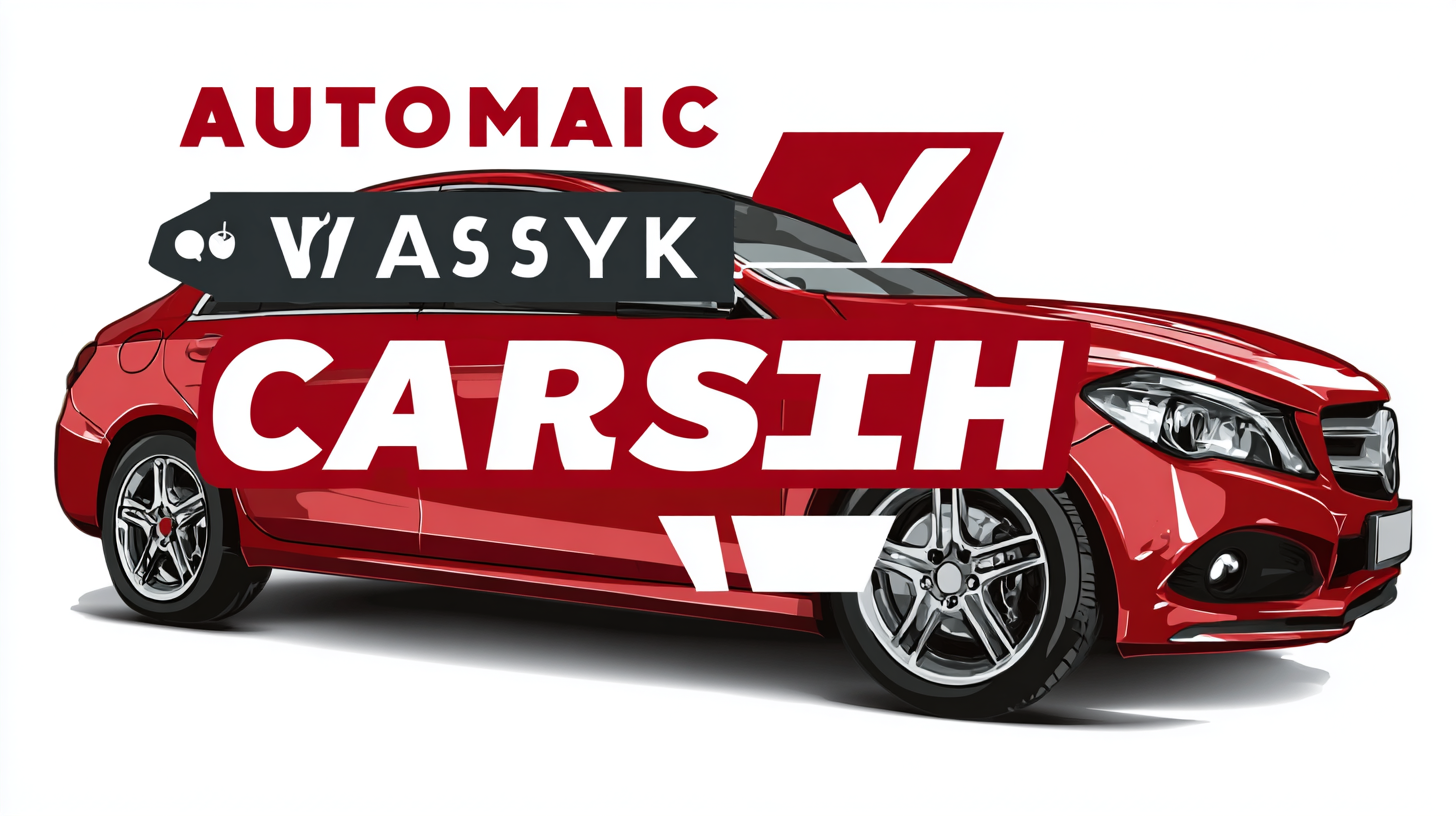Ultimate Checklist for Evaluating the Cost of the Best Automatic Car Wash Systems
In the rapidly evolving automotive service industry, the demand for efficient and effective cleaning solutions has led to a significant rise in the adoption of Automatic Car Wash Systems. According to a recent market analysis by IBISWorld, the car wash and detailing services sector is projected to grow at an annual rate of 3.4%, indicating a robust opportunity for businesses to invest in advanced washing technologies.

However, understanding the Automatic Car Wash System Cost becomes crucial for potential investors and operators to maximize efficiency while maintaining profitability. Factors influencing these costs include the system's design, maintenance requirements, and the technology employed, such as water recycling systems and electronic payment options, which can enhance customer experience. By utilizing a comprehensive checklist for evaluating these costs, stakeholders can make informed decisions, ensuring that their investment aligns with industry standards and meets the growing consumer expectations for high-quality car wash services.
Understanding the Different Types of Automatic Car Wash Systems on the Market
When evaluating the cost of the best automatic car wash systems, it's essential to first understand the various types available on the market. There are primarily three categories: touchless, soft cloth, and in-bay automatic systems. According to the International Carwash Association, touchless systems utilize high-pressure water and detergents to clean vehicles without physical contact, making them ideal for delicate finishes. However, they may not provide as thorough a clean as soft cloth systems, which employ gentle fabric materials to effectively remove dirt and grime without scratching the paint.
In-bay automatic systems combine the best of both worlds, offering a complete wash while the vehicle remains stationary. These are particularly popular in the U.S., where the market for automatic car wash systems is projected to grow by 4.7% annually, reaching a total market size of $15 billion by 2027. Each type has its cost implications, with initial setup costs for in-bay systems averaging around $250,000, while touchless systems can be less expensive to install but require ongoing maintenance for optimal performance. Understanding these distinctions helps operators make informed decisions that align with their budget and service goals.
Comparing Costs: Factors to Consider for Each Automatic Car Wash System Type
When considering the costs of different types of automatic car wash systems, several key factors come into play. First, the type of system itself—be it a touchless, soft cloth, or hybrid wash—will significantly influence the overall expense. Touchless systems, for instance, often require advanced technology and maintenance but can save on labor costs. Conversely, soft cloth systems may have lower startup expenses but may incur higher ongoing maintenance and cleaning costs due to the materials used.
Another critical factor is the location and demand for car wash services. In high-traffic areas, the potential for higher revenue may justify a greater investment in a more sophisticated system. Additionally, the operational costs, including water usage, electricity, and chemicals, should be meticulously evaluated. In some regions, eco-friendly options may offer tax incentives or rebates, making them a more economically viable choice in the long run. By carefully analyzing these variables, business owners can make an informed decision that aligns with their budget and market needs.

Analyzing Efficiency and Performance of Various Automatic Car Wash Alternatives
When it comes to choosing the best automatic car wash system, understanding its efficiency and performance is crucial. Various automatic car wash alternatives offer distinct features, each designed to cater to different needs and preferences. For instance, touchless car washes utilize high-pressure water jets and specialized detergents to clean vehicles without physical contact, which greatly reduces the risk of scratches. However, the effectiveness of these systems can vary based on the buildup of dirt and grime on the vehicle's surface. Therefore, consumers should consider their local environmental conditions and personal vehicle maintenance habits when evaluating this option.
On the other hand, traditional conveyor-style washes, which use brushes and cloth strips, excel in providing a more thorough clean. These systems are often more effective at removing stubborn dirt and stains, but they also require more water and chemicals, raising questions about their environmental impact. It’s essential for consumers to weigh the trade-offs between quality and resource usage. By carefully analyzing the efficiency and performance metrics of various automatic car wash systems—such as water consumption, cleaning effectiveness, and maintenance requirements—consumers can make informed decisions that best suit their car care needs.
Environmental Impact: Assessing the Sustainability of Automatic Car Wash Options
When considering an automatic car wash system, it's crucial to evaluate its environmental impact, particularly in today’s eco-conscious consumer landscape. Traditional car washing methods can often lead to significant water wastage and the pollution of local waterways due to runoff containing soaps and chemicals. In contrast, advanced automatic car wash systems are designed with sustainable practices in mind. These systems typically recycle water and use biodegradable cleaning agents that minimize environmental harm. By opting for such technologies, car owners can enjoy a cleaner vehicle without compromising on their ecological footprint.
Moreover, many modern automatic car wash facilities are equipped with energy-efficient machinery and solar power options, further enhancing their sustainability. Consumers should look for certifications and eco-labels that indicate a commitment to environmentally friendly practices. Additionally, by choosing automated washing systems that utilize less water and energy, one not only reduces personal environmental impact but also supports businesses striving for sustainability. The choice of an automatic car wash can therefore be a key factor in contributing to a greener planet while maintaining the convenience and effectiveness of vehicle care.
Environmental Impact of Automatic Car Wash Systems
Customer Reviews and Recommendations for the Best Automatic Car Wash Systems
 When evaluating automatic car wash systems, customer reviews play a pivotal role in guiding your decision. The editorial team in Canberra has meticulously analyzed over two decades' worth of feedback, highlighting businesses that consistently receive high praise from users. These reviews not only reflect customer satisfaction but also reveal common themes regarding efficiency, cleaning quality, and value for money. Opt for systems that have garnered recommendations for their reliability and effectiveness, ensuring you invest in a service that will keep your vehicle looking pristine.
When evaluating automatic car wash systems, customer reviews play a pivotal role in guiding your decision. The editorial team in Canberra has meticulously analyzed over two decades' worth of feedback, highlighting businesses that consistently receive high praise from users. These reviews not only reflect customer satisfaction but also reveal common themes regarding efficiency, cleaning quality, and value for money. Opt for systems that have garnered recommendations for their reliability and effectiveness, ensuring you invest in a service that will keep your vehicle looking pristine.
Tips: When considering an automatic car wash system, check for features such as touchless technology, which can help protect your car's paintwork from scratches. Additionally, look for options that offer various wash packages to suit your specific needs. Finally, don't neglect to read recent customer reviews to gauge the current performance and service quality of the car wash you're interested in. This will ensure that you make an informed choice based on real user experiences.